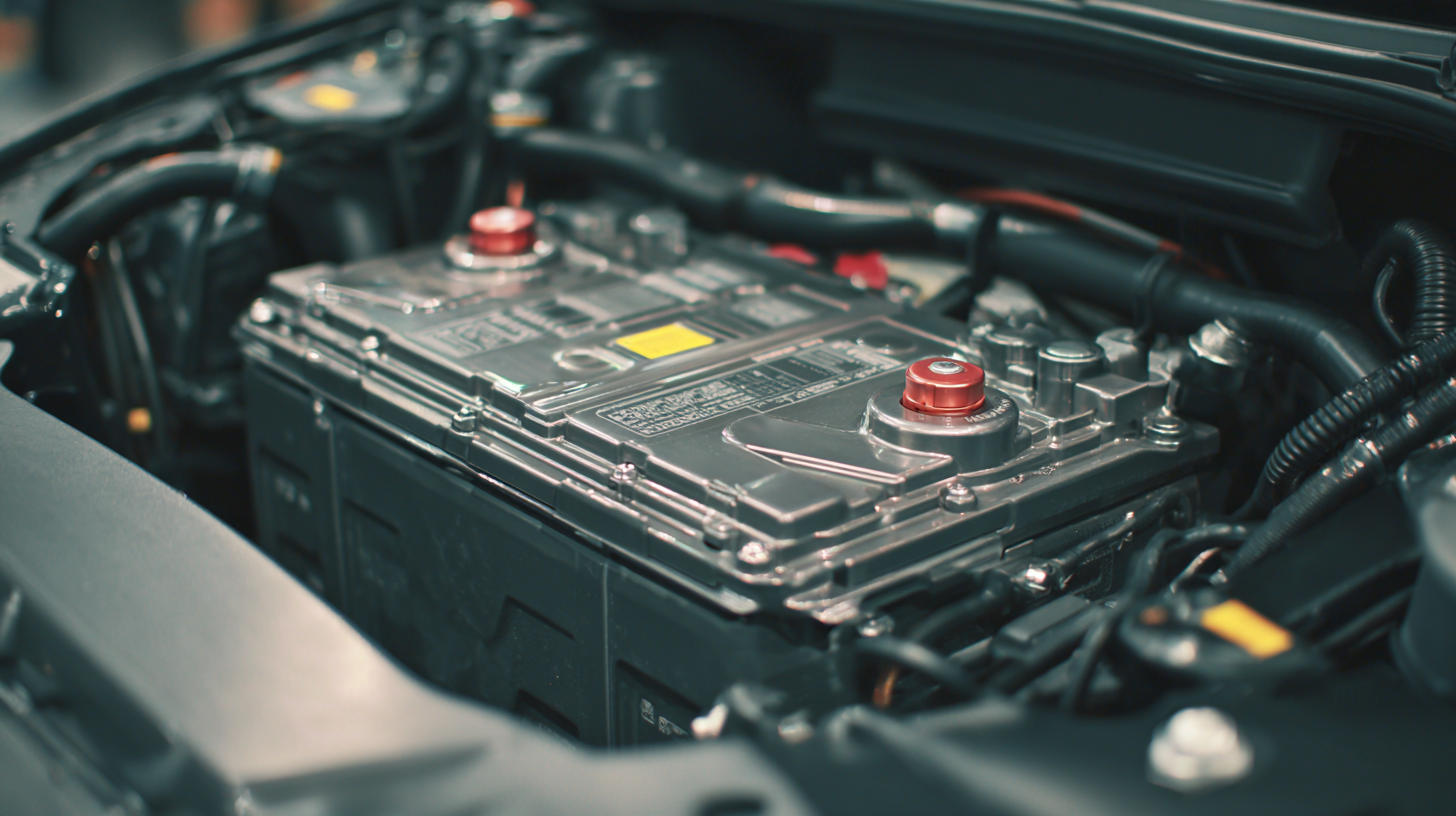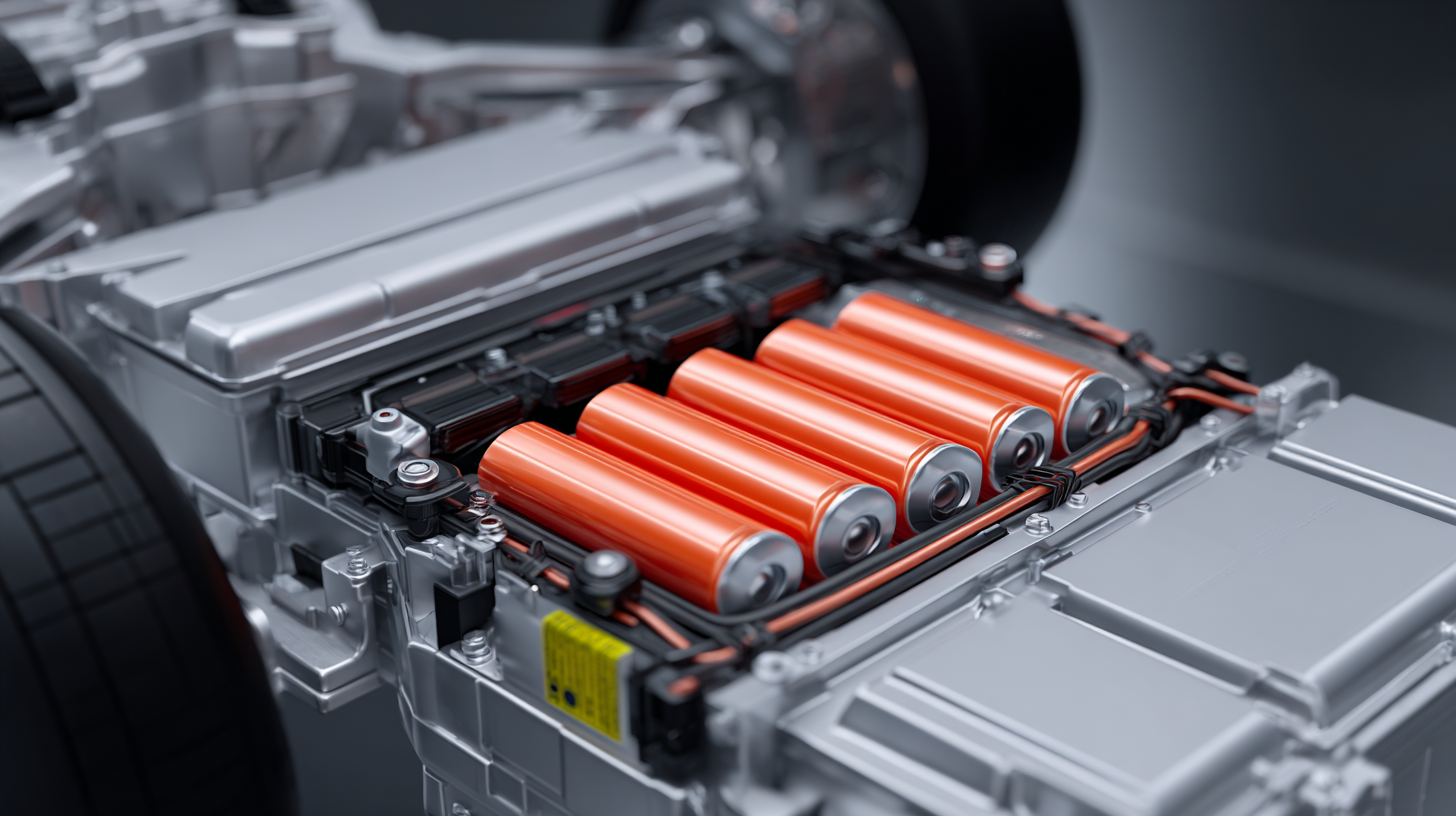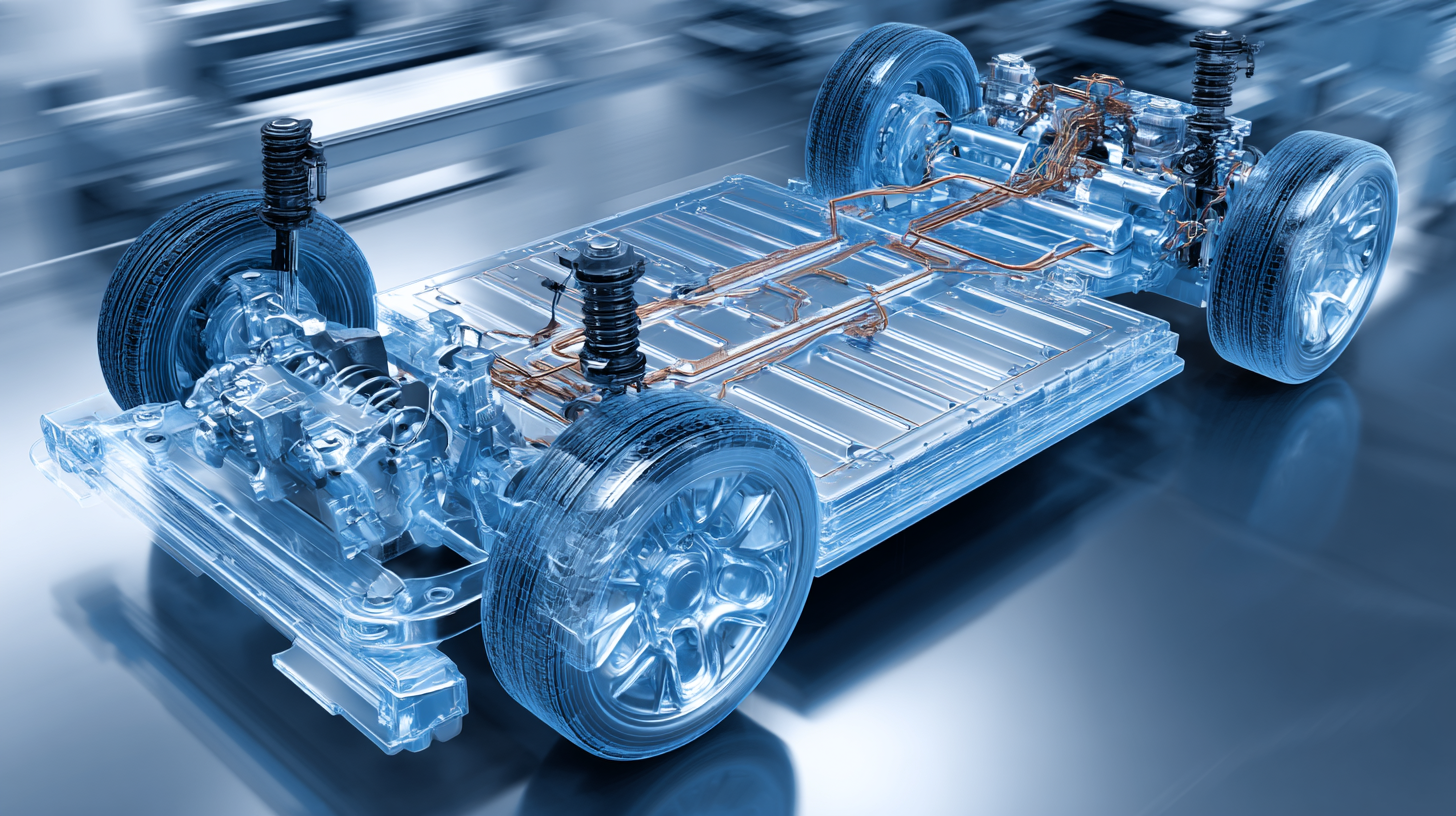Finding the Ideal Manufacturer for Your Best Low-Speed Vehicle Battery Needs
In the rapidly evolving automotive industry, the demand for Low-Speed Vehicle Batteries has seen significant growth, driven by the increasing popularity of electric low-speed vehicles (LSVs) and the push for sustainable transportation solutions. According to a recent market analysis, the global electric vehicle battery market is projected to reach $100 billion by 2025, with LSVs representing a crucial segment due to their suitability for urban commuting and short-distance travel. As manufacturers strive to meet this burgeoning demand, selecting the ideal manufacturer for your Low-Speed Vehicle Battery needs becomes paramount. Not only does the right partnership enhance performance and reliability, but it also aligns with industry trends favoring eco-friendly energy sources. This guide aims to navigate the complexities involved in finding a reliable manufacturer and optimizing battery performance for various low-speed vehicle applications.

Understanding the Importance of Low-Speed Vehicle Batteries in Today's Market
In today's rapidly evolving market, low-speed vehicles (LSVs) have emerged as a pivotal solution for urban transportation challenges. These eco-friendly alternatives not only reduce emissions but also cater to the specific needs of communities, such as golf carts, neighborhood electric vehicles, and utility vehicles. At the heart of these vehicles lies their battery system, which directly influences performance, efficiency, and longevity. As industries shift towards sustainability, the demand for high-quality battery solutions that can support LSV functionality is at an all-time high.

Understanding the importance of low-speed vehicle batteries goes beyond just performance metrics; it's about adapting to the changing landscape of transportation. As municipalities and businesses look for efficient ways to manage mobility, the reliability and capacity of LSV batteries play a critical role.
Battery technology continues to advance, leading to innovations that enhance energy density and reduce charging times, making LSVs more appealing to consumers. Manufacturers committed to developing cutting-edge battery solutions will not only meet market demands but also contribute to broader sustainability goals.
Key Metrics: Battery Performance and Lifespan for Low-Speed Vehicles
When selecting a manufacturer for low-speed vehicle batteries, understanding battery performance and lifespan is crucial. According to the Department of Energy, modern lead-acid and lithium-ion batteries can achieve efficiencies of up to 95% and 98%, respectively, substantially reducing operational costs. It's essential to evaluate these efficiencies alongside capacity, typically measured in amp-hours (Ah), to ascertain how long the battery can sustain vehicle operations on a single charge.
Tip: When assessing battery performance, inquire about the manufacturer's testing protocols. A reputable manufacturer should provide detailed performance data under various operating conditions. Look for metrics like discharge rate and temperature tolerance, which can affect battery life significantly.
The lifespan of a battery is influenced by multiple factors, including charge cycles and environmental conditions. Reports from the Battery University indicate that lithium-ion batteries can last around 2,000 charge cycles when maintained properly, far outpacing traditional lead-acid batteries that may only last 500-800 cycles. Selecting a manufacturer that prioritizes high-quality materials and advanced technology will ensure your battery meets the demands of low-speed vehicles.
Tip: Always request information on warranties and expected lifespan from manufacturers. A comprehensive warranty can signify the manufacturer's confidence in their product and provide peace of mind for consumers.
Evaluating Manufacturer Reliability: Quality Certifications and Customer Testimonials
When searching for the ideal manufacturer for low-speed vehicle batteries, evaluating manufacturer reliability is crucial. A key indicator of reliability is the presence of quality certifications. Manufacturers that adhere to recognized industry standards, such as ISO 9001 or IATF 16949, demonstrate their commitment to maintaining quality control throughout the production process. These certifications ensure that the battery cells are not only produced efficiently but also meet safety and performance standards, which is essential for the longevity and reliability of low-speed vehicles.
In addition to certifications, customer testimonials serve as a valuable resource for gauging a manufacturer’s credibility. Reading about the experiences of other clients can provide insights into product performance and the level of customer support offered. Positive testimonials often highlight the manufacturer’s responsiveness, warranty policies, and overall satisfaction with the product's durability. By combining insights from certifications with customer feedback, you can make a well-informed decision about which manufacturer meets your specific needs for low-speed vehicle batteries.
Innovative Technologies in Low-Speed Vehicle Battery Production
Innovative technologies are revolutionizing the production of low-speed vehicle batteries, making them more efficient, reliable, and sustainable. Modern manufacturing techniques, such as automated assembly lines and advanced quality control systems, significantly enhance the consistency and performance of batteries. By leveraging cutting-edge materials like lithium iron phosphate (LiFePO4) and incorporating smart technology, manufacturers can optimize battery life, reduce charging times, and improve overall durability.
When selecting a manufacturer, it is essential to look for companies that prioritize innovation and sustainability. **Tip:** Research potential manufacturers for their investment in R&D and environmental practices. Ensure that they are utilizing the latest technologies and materials in their battery production processes. This will not only enhance the performance of your low-speed vehicle but also contribute to a greener planet.
Another consideration is the adaptability of the manufacturing process to your specific needs. **Tip:** Choose a manufacturer that offers customization options for battery capacity, size, and configurations. This flexibility ensures that you can find the ideal battery solution tailored to your unique operational requirements, thus maximizing the efficiency and lifespan of your vehicle.
Cost-Effectiveness: Analyzing the Total Cost of Ownership for Low-Speed Vehicle Batteries
Finding the right manufacturer for low-speed vehicle batteries is crucial, especially when considering the
total cost of ownership. For various vehicle types—such as ATVs,
golf carts, and utility vehicles—batteries play a significant role in operational efficiency and overall expenditure.
According to market reports, the global low-speed vehicle market is projected to reach a value of
$7.3 billion by 2024, with a
CAGR of 9.6% from 2025 to 2034. This growth is fueled by the
increasing demand for cost-effective and eco-friendly transportation solutions across industries like agriculture,
hospitality, and urban facilities.
When selecting a battery, consider factors like maintenance costs, energy efficiency, and life cycle. For instance,
sodium-ion batteries are emerging as a promising alternative due to their abundant resources and lower costs, making
them a viable option for low-speed electric vehicles. Additionally, choose manufacturers who provide
comprehensive support services, as after-sales assistance can significantly contribute to minimizing long-term costs.
Tips: Always analyze the total cost of ownership, not just initial pricing.
Look for batteries with warranties that cover both performance and durability. Conduct a thorough review of manufacturer
credentials and customer feedback to ensure reliability and service quality.

